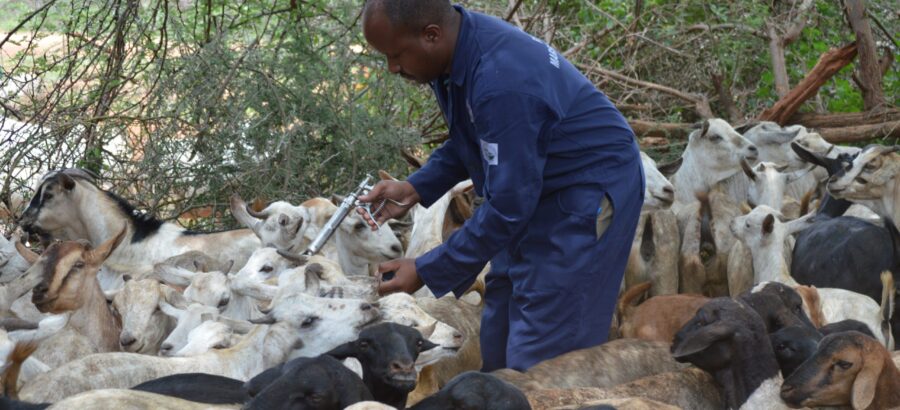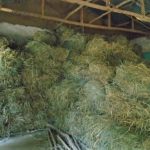Peste des petits ruminantes (PPR) and other key small ruminant diseases (SRDs) are among trade-sensitive animal diseases in the IGAD Region. The IGAD Centre for Pastoral Areas and Livestock Development (ICPALD), established and operationalized the regional PPR control and eradication coordination committee (CECC), developed regional PPR strategies and programme for the control and eradication of PPR, assisted IGAD countries to develop national PPR strategies and align them to the regional and global strategies. These actions are believed to contribute to joint and coordinated efforts towards eradicating PPR globally by 2030.
The objectives of this virtual meeting held on 21 October 2020 were to review the progress and updates on regional, continental and global PPR control and eradication programme, to receive updates on PPR control and eradication efforts at national levels, including resource mobilization efforts and to coordinate, exchange good practices and lessons on PPR/SRD control and eradication programmes in the region.
The participants were Directors of Veterinary Services (CVOs) and PPR Focal Persons from 12 Member States of Eastern Africa (IGAD and EAC), regional laboratory, EPI and quarantine coordinators from the region, and technical partner international organizations such as AU-IBAR, FAO, OIE, PANVAC, ILRI and ICPALD/IGAD. Dr. Harry Oyas, representing the Chief Veterinary Officer (CVO), Kenya, opened the workshop. Welcome remarks were made by Dr. S. J. Muchina Munyua, Director of ICPALD, and Prof. Ahmed, Director of AU-IBAR.
The key meeting recommendations are as follows:
1. Resource Mobilization
- Member States (MS) should be included in national budgets as well as in national resource mobilization efforts from donor communities and lenders to PPR eradication programs/ activities as a national priority.
- Member States with support of IGAD should carry out advocacy to policy makers (national and sub-national levels) to include PPR eradication into national and sub-national plans to attract national funding.
- Member States and development partners such as (AU-IBAR, IGAD, FAO, OIE) should undertake resource mobilization to support cross-border programs that will help the eradication of PPR and other TADs.
2. Coordination
- MS and IGAD should facilitate implementation of signed cross-border bilateral and multilateral MoUs to harmonize regional prevention and control efforts of PPR- surveillance, vaccination, information sharing and reporting while AU-IBAR should support coordination and cooperation between RECs
- All partners (AU-IBAR, IGAD, FAO, OIE) should strengthen regional advisory body (RAG).
- Countries should strengthen/establish the implementation coordination structures at national and sub-national levels and seek more buy-in for PPR eradication plans to give more support to surveillance and control activities.
- Develop and disseminate key messages on PPR eradication.
3. Capacity Building/Training
- Facilitate regional training on risk analysis and use of revised PMAT tool by FAO and OIE.
- OIE, FAO, AU-IBAR and IGAD to support MS on identified technical assistance to develop investment ready plans to be funded as special program, for effective PPR control and eradication.
- MS to focus on revised PMAT and the OIE Terrestrial Animal Health Code (TAHC – Chapter 14.7) as tools for assessment and guidance on progressing from one stage to the other along the PPR control and eradication pathway.
4. Vaccination
- MS to undertake epidemiology supported, risk based vaccination and promote responsibilities for appropriate public private sector partnerships (PPP), in the delivery of PPR vaccination where applicable.
- Strengthen external vaccine quality control by PANVAC and MS to utilize only PANVAC quality certified vaccine.
ICPALD expresses appreciation to FAO/SFE/ for funding this activity.






